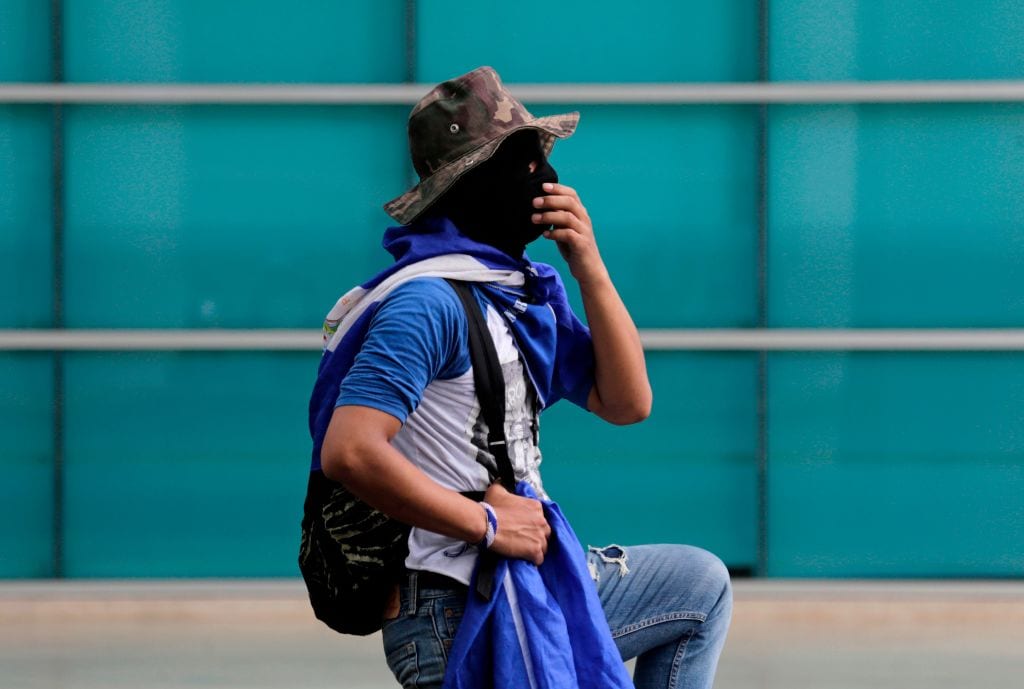Since the current human rights erupted in Nicaragua in 2018, the government has clamped down on all forms of dissent or criticism. The authorities have pursued a policy of eradicating, at any cost, activism and the defense of human rights, said Amnesty International in a new report published today.
In Silence at any cost: State tactics to deepen the repression in Nicaragua, Amnesty International exposes the strategies used by the Nicaraguan authorities responsible for one of the darkest chapters in the country’s recent history, where anyone who opposes government policies may lose their freedom and even their lives.
“For almost three years, Daniel Ortega’s government has shown time and again that it is willing to do anything to prevent human rights from becoming a reality in Nicaragua. The Nicaraguan authorities must stop continuously trampling on the dignity of thousands of victims of repression,” said Erika Guevara-Rosas, Americas director at Amnesty International.
“When images of the violent crackdown on mass protests, which broke out in response to a series of reforms to the social security system, made the front pages of major newspapers around the world in 2018, it seemed that the human rights crisis in the country had reached its peak. Yet the nightmare continues.”
Local organizations continue to criticize the government’s use of the justice system to imprison activists following arbitrary proceedings. At the end of November 2020, when the report as finalized, more than 100 people remained behind bars solely for exercising their rights to freedom of expression and peaceful assembly.
People detained for their activism continue to report ill-treatment and harassment in prisons, as additional punishment measures. The COVID-19 pandemic aggravated long-standing problems related to prison conditions in Nicaragua and has caused alarm among the families of those held and human rights organizations concerned about the conditions for detainees.
Local organizations interviewed by Amnesty International reported that dozens of people detained for political reasons suffer from medical conditions that put them at particular risk from COVID-19. According to statements gathered by Amnesty International, despite some detainees having shown symptoms that could be consistent with the virus, testing is practically non-existent, as are medical treatment and health care.
Even after leaving prison, their situation does not improve significantly. Released activists and their families report that the level of harassment experienced after they return home is such that it prevents them from carrying out their daily activities, such as working or studying, and that continuing their activism entails a high risk to their lives and freedom.
Types of harassment have included excessive checks by immigration and police officials at the borders with neighboring countries, a heavy police presence at religious events, continuous surveillance of their homes by police officers, arrests, physical attacks, direct verbal threats from police officers, their homes being daubed with threats and attacked, and damage to their belongings and livelihoods.
In December 2020, local organizations estimated that 31 people who had been released were rearrested and detained for exercising their rights.
Journalists and human rights defenders are living in an environment of permanent harassment by the authorities. For many, this includes the cancellation of their legal registration, seizure of their property and, recently, the destruction of their premises. In addition, in October 2020 the state began a process to approve a package of laws that threaten the exercise of human rights, including the right to freedom of association and freedom of expression.
“What they are approving are instruments of repression to legalize all the attacks that, for a long time, have been committed against human rights,” Vilma Nuñez, a human rights defender at the Nicaraguan Center for Human Rights, told Amnesty International.
The constant threats and harassment have caused hundreds of thousands of people, including journalists and human rights defenders, to flee to other countries to safeguard their freedom and lives. “The options were: jail, the cemetery or exile,” Gonzalo Carrión, a human rights defender who now lives outside Nicaragua, told Amnesty International.
Human rights defenders fear the worst is yet to come. They maintain that, in the run-up to the November 2021 presidential elections, human rights violations, which have not stopped, will intensify as the government seeks to silence any form of opposition or criticism.
“Achieving justice in Nicaragua seems impossible. The international community must take decisive steps to put an end to the nightmare in which the population is living and take action to provide full support to all those who continue to fight for a Nicaragua free of repression. We will not stop our work exposing this until the Nicaraguan government is held accountable for its actions and puts an end to human rights violations,” said Erika Guevara-Rosas.
Read more:
Silence at any cost: State tactics to deepen the repression in Nicaragua (Report, February 15, 2021) https://www.amnesty.org/en/documents/amr43/3398/2021/en/
Nicaragua: Ortega government appears to be preparing for a new phase of repression (News, September 30, 2020) https://www.amnesty.org/en/latest/news/2020/09/nicaragua-gobierno-pareciera-preparar-nueva-fase-represion/

